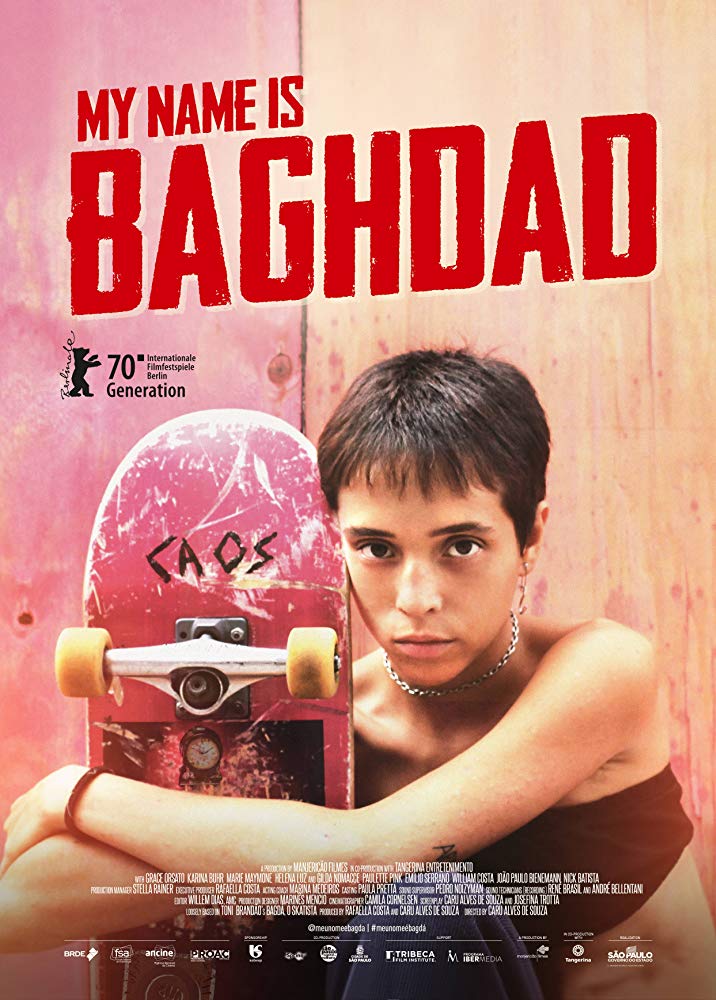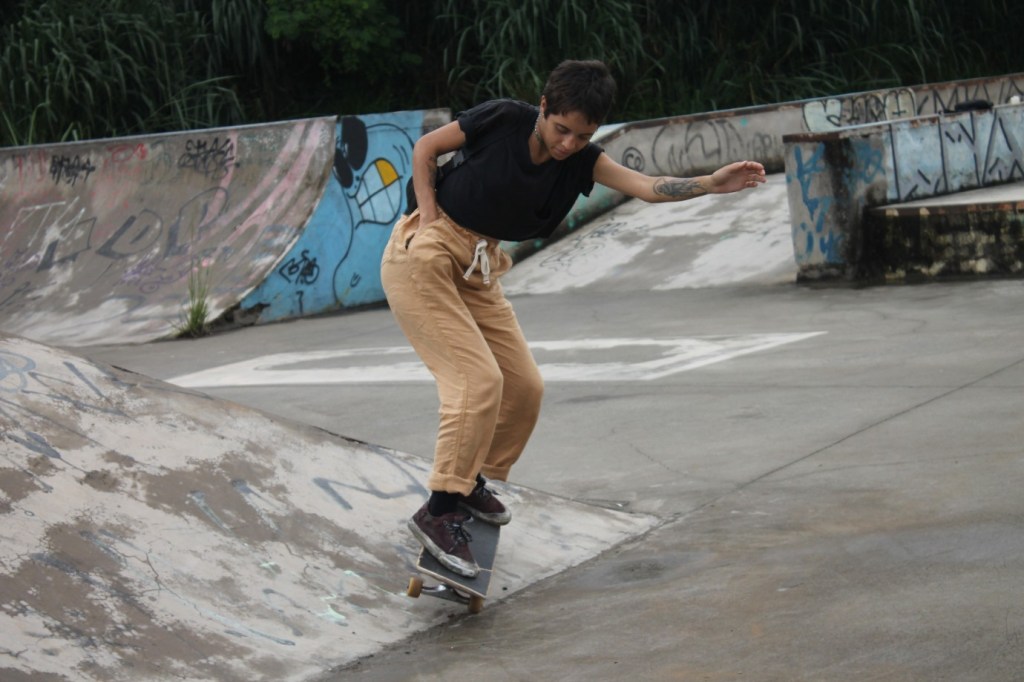Meu Nome é Bagdá
Director: Caru Alves de Souza
Writer: Caru Alves de Souza, Josefina Trotta
Cast: Grace Orsato, Karina Buhr, Marie Maymone, Helena Luz, Gilda Nomacce, Paulette Pink, Emílio Serrano, William Costa, João Paulo Bienermann, Nick Batista
Part of: this human world Film Festival
Seen on: 12.12.2020
Content Note: sexualized violence, police brutality
Plot:
Baghdad (Grace Orsato) cruises the streets of Sao Paulo with her skateboarding crew. When she isn’t out and about she hangs with her single mother (Karina Buhr) and little sister (Marie Maymone), and her mothers friends. Baghdad is little interested in school or anything but improving her skating abilities. But her group of friends is mostly boys, except for her and Vanessa (Nick Batista). Until they meet another group of female skaters.
My Name Is Baghdad is a wonderful film that takes a sharp look at how a girl really can’t ever be one of the boys – but she can be lucky to be one of the girls. It’s sweet and touching and has great energy.
Baghdad is very androgynous (maybe she’s non-binary, but if so, there is no coming out in the film) and often mistaken for a guy from afar. She appears, for the most part, to be accepted as simply one of the guys. But the film shows several moments where the people around her basically drag her femaleness out of her. When men do it, it usually means that things are about to turn very bad for her: it’s a sign for the men to assert their power over her.
When Vanessa becomes part of her group, Baghdad seems distant at first. But just by virtue of both being girls, they are drawn closer together. And when they meet the other skater girls, they seem to find an actual home of solidarity. This is mirrored in her mother’s relationships – she, too, is surrounded by women (and a gay guy), making the film an ode to the power of friendship between women – and a sharp analysis of how patriarchal power is ever present, also in our relationships.
But apart from that, the film is also simply well done – excellently set in scene with fantastic performances, especially by Orsato, and a great soundtrack. It has a great sense of energy and an eye for little moments that is usually hard to find together in one film. And finally, it’s a bit of a love letter to Sao Paulo, capturing the city as a playing field and a field for exploration.
In short, it is a striking and lovely film that hit me right in the feels and proves Alves de Souza’s skill as a filmmaker. I can’t recommend it enough.
Summarizing: Loved it.


